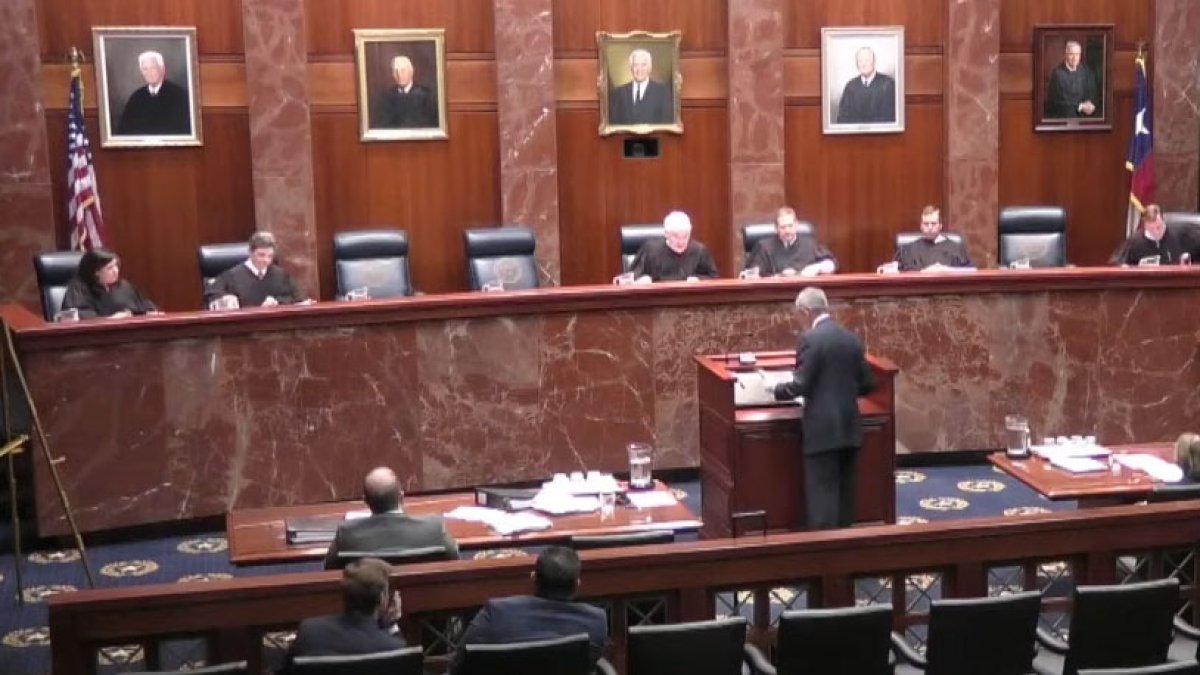
The Texas Supreme Court heard arguments Tuesday in a key case involving the plan to build a bullet train between Dallas and Houston.
The Texas Supreme Court heard arguments Tuesday in a key case involving the plan to build a bullet train between Dallas and Houston.
The case pits landowner James Fredrick Miles against Texas Central, the developer of the proposed high-speed rail project.
The question was whether "Texas Central" is a railroad, under the state's definition, which would give them the power to use eminent domain to acquire property for the rail line, and whether a business must show a reasonable probability of project completion to invoke eminent domain.
Miles challenged Texas Central’s eminent domain authority after the company attempted to survey roughly 600 acres of his land in Leon County. Texas Central counterclaimed, seeking a declaratory judgment that they were a "railroad company" under the Texas Transportation Code.
Get DFW local news, weather forecasts and entertainment stories to your inbox. Sign up for NBC DFW newsletters.
The trial court granted summary judgment for Miles. The court of appeals reversed, concluding that Texas Central was “operating a railroad” and thus, a “railroad company” under the statute. Additionally, the court of appeals concluded that, because Texas Central was chartered for the purpose required under the Transportation Code, the company also qualified as an “interurban electric railway.”
Last month, The Texas Tribune reported deputies for Texas Attorney General Ken Paxton argued the high court should reverse that appellate decision and rule in Miles’ favor because the companies fall short of the Texas Constitution’s definition of a rail company. Read the letter from the AG's office here.
The Texas Supreme Court's decision could be a critical turning point in whether developers are able to secure land to continue the project.
The court did not say when they would have future hearings on the case.